The reputation of Swiss Army knives is built on their versatility and trustworthiness. Whether you’re an outdoor enthusiast, an everyday user, or an occasional handyman, these pocket-sized multi-tools are indispensable. However, to ensure they remain in top shape, regular maintenance and cleanliness are essential. In this comprehensive guide, we’ll dive into Swiss Army knife care.

Table of Contents
The Importance of Swiss Army Knife Care
Before we explore the steps to keep your Swiss Army knife clean and functional, let’s emphasize why proper care matters.
Maintaining Performance
Swiss Army knives are designed to perform various tasks, from cutting to screwdriving. Regular cleaning and maintenance ensure each tool works flawlessly when needed.
Preventing Corrosion
The metal components of your Swiss Army knife can be susceptible to corrosion, especially if exposed to moisture or harsh environments. Proper care prevents rust and extends the tool’s lifespan.
Hygiene and Safety
If you use your knife for food preparation or first aid, cleanliness is vital to prevent contamination. Regular cleaning safeguards your health and well-being.
Swiss Army Knife Cleaning Step
Now, let’s move on to the practical steps for cleaning your Swiss Army knife.
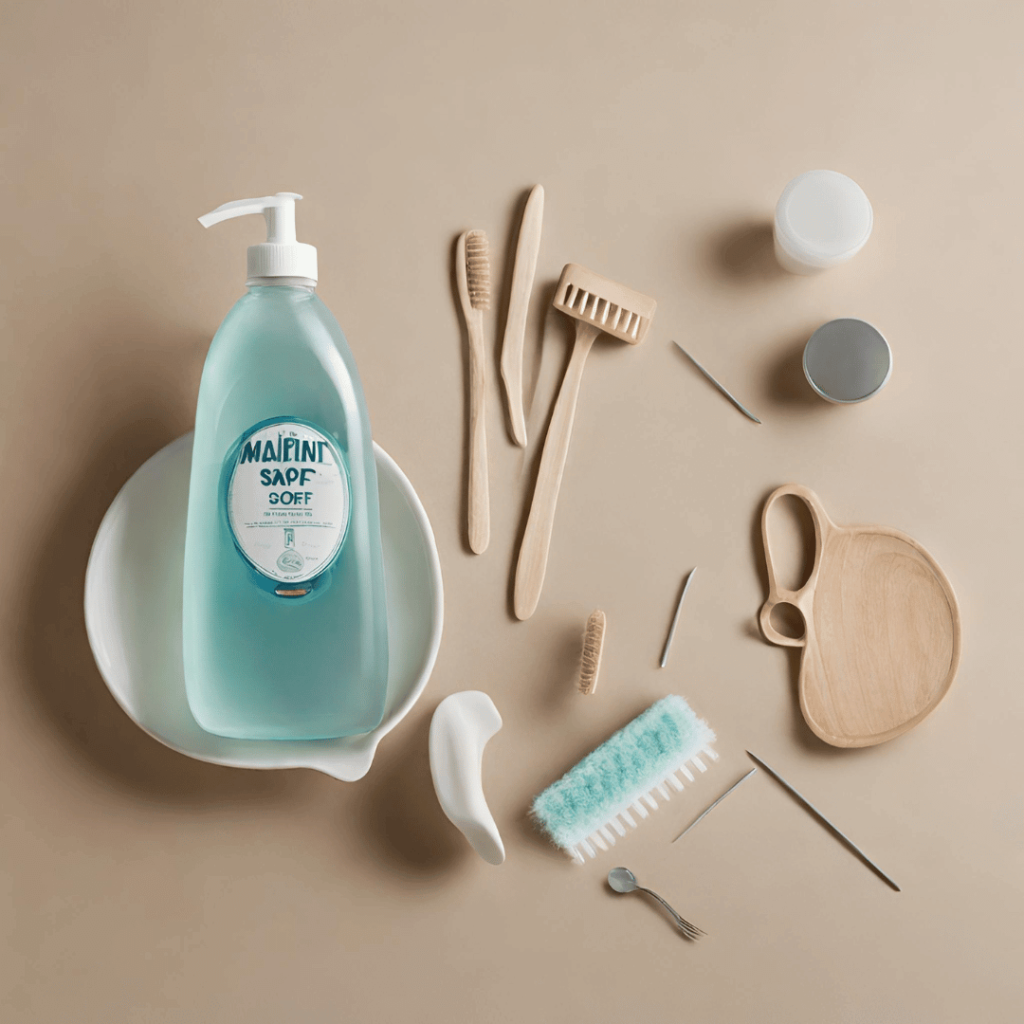
Step 1: Gather Your Supplies
- Mild Dish Soap
- Warm Water
- Soft Bristle Brush or Toothbrush
- Soft, Lint-Free Cloth
- Toothpick or Thin Blade (for tight spots)
Step 2: Disassemble Carefully
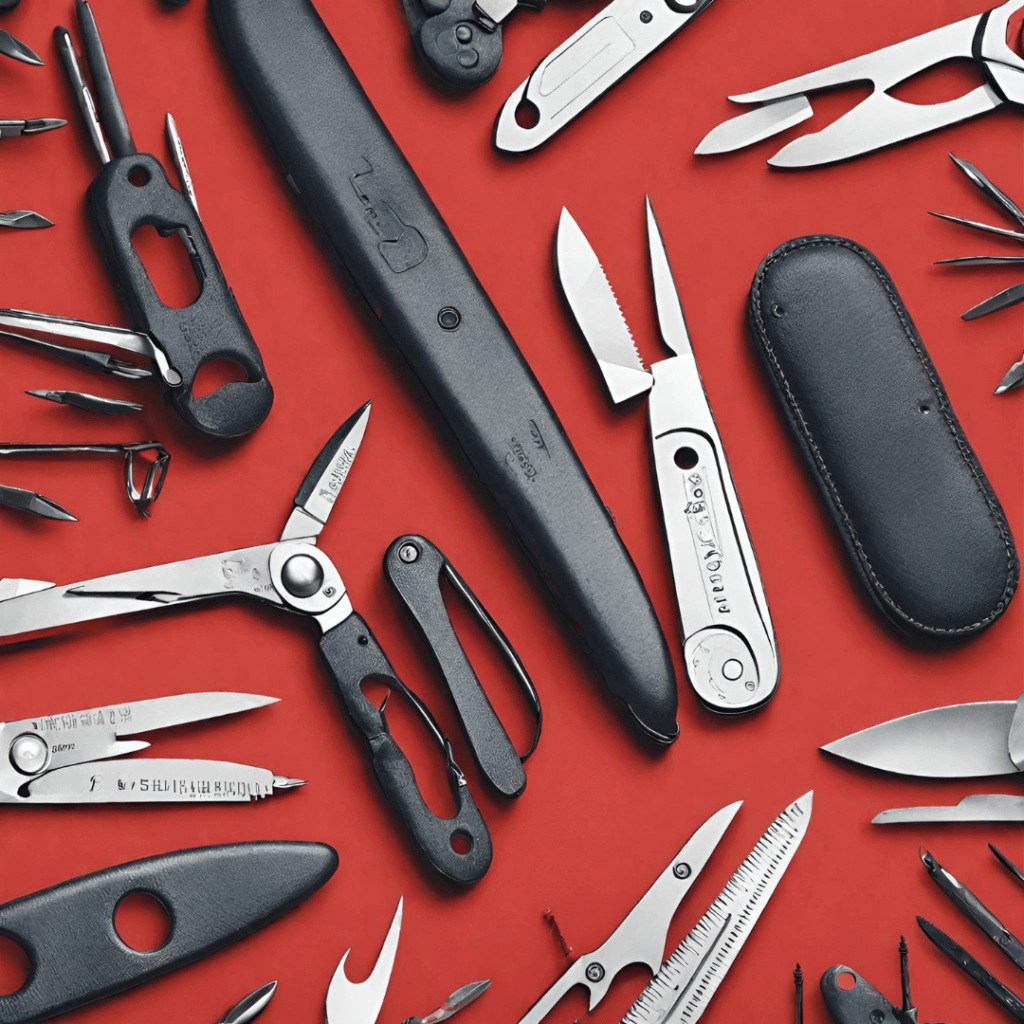
Most Swiss Army knives have multiple tools. Carefully disassemble your knife to access all components for cleaning. Pay attention to the order in which you remove tools, making reassembly easier.
Step 3: Soak in Soapy Water
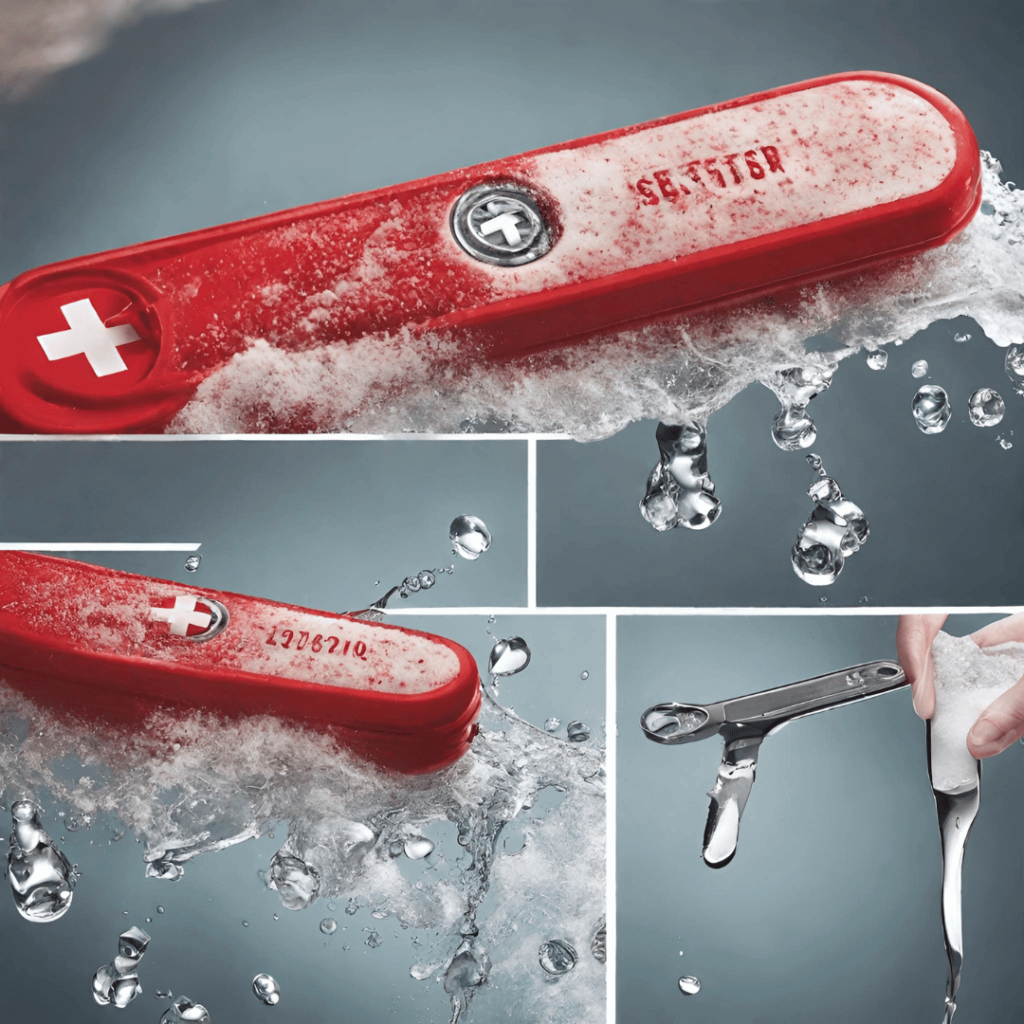
Fill a container with warm water and add a few drops of mild dish soap. Submerge the knife’s components and let them soak for 10-15 minutes. This will help loosen dirt and debris.
Step 4: Brush and Scrub
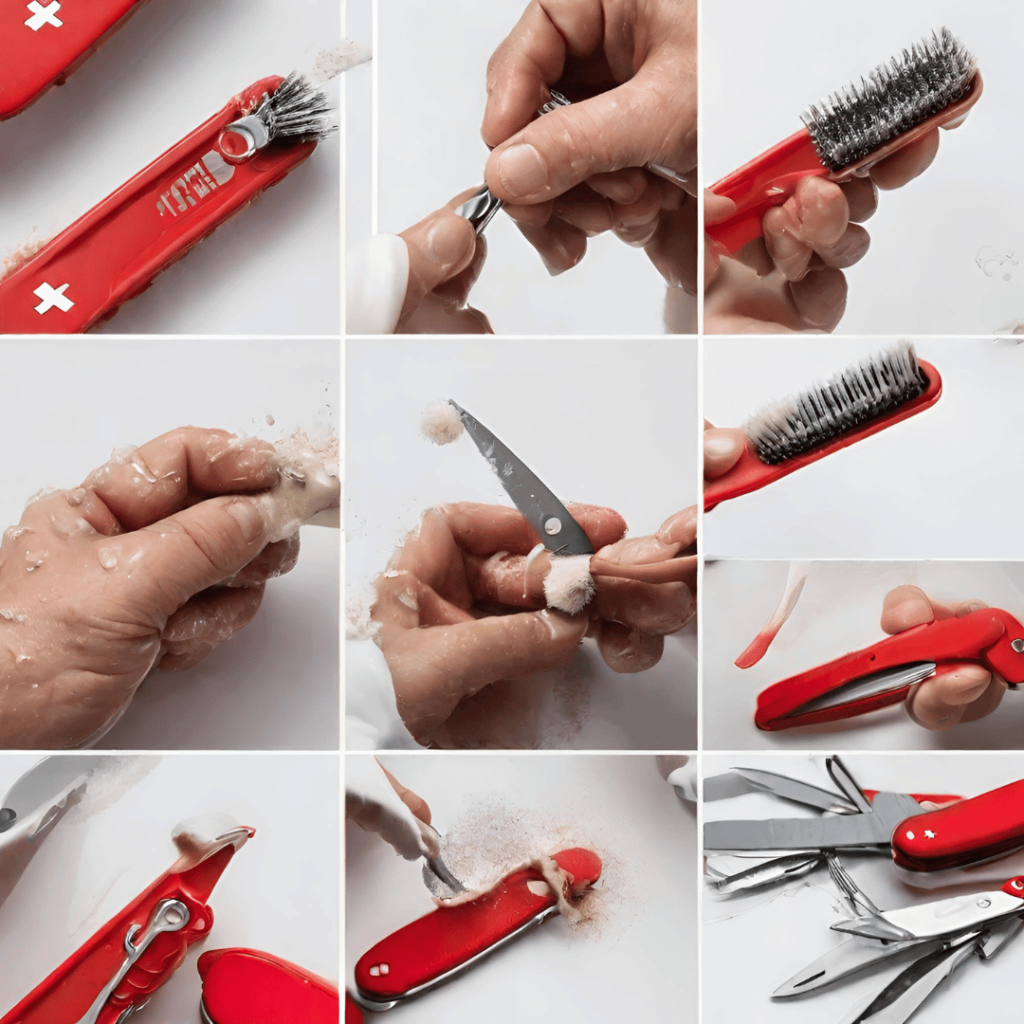
Use a soft bristle brush or toothbrush to gently scrub the components. Pay attention to crevices and hard-to-reach areas. For tight spots, a toothpick or a thin blade can be useful.
Step 5: Rinse Thoroughly
Rinse each component under running warm water to remove soap and loosened debris. Make sure no soap residue remains.
Step 6: Dry Completely
Use a soft, lint-free cloth to dry each component thoroughly. Ensure there is no moisture left to prevent corrosion.
Step 7: Lubricate Moving Parts
To maintain the functionality of moving parts, apply a small amount of lubricant, like mineral oil or silicone-based oil, sparingly. This prevents stiffness and ensures smooth operation.
Step 8: Reassemble Carefully
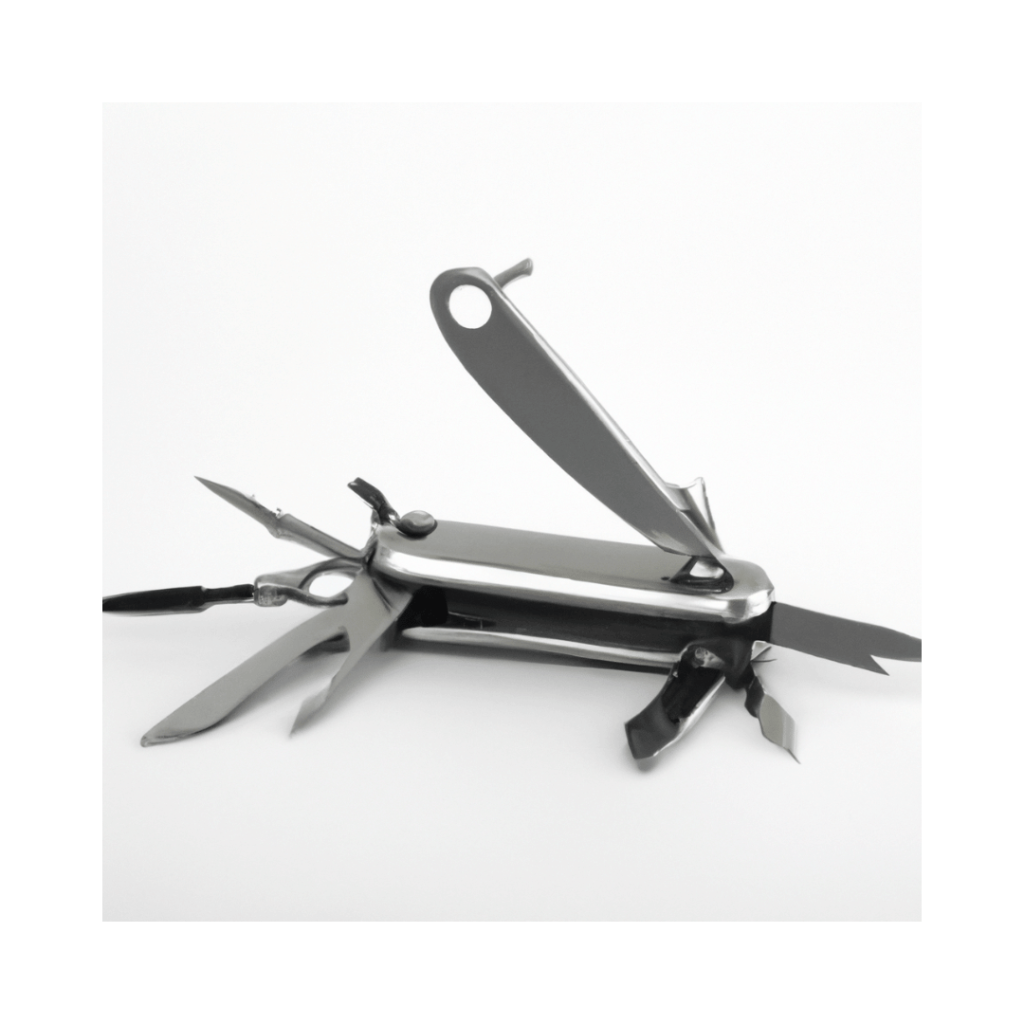
Reassemble your Swiss Army knife in the reverse order in which you disassembled it. Ensure all tools fit snugly and securely.
Storing Your Clean Swiss Army Knife
Proper storage is the final step in Swiss Army knife care. Keep it in a cool, dry place, and consider a protective pouch or sheath for added protection. Avoid storing it in damp or humid environments.
Conclusion
Your Swiss Army knife is a trusted companion for various tasks, and its care should not be overlooked. By following these steps, you can keep your multi-tool clean, rust-free, and ready for action. Remember, a well-maintained Swiss Army knife is not only a reliable tool but also an investment in long-lasting performance and safety.
FAQS
Q1: Can I use regular household cleaners to clean my Swiss Army knife?
A1: It’s best to stick with mild dish soap and warm water to avoid damaging the knife’s components.
Q2: How often should I clean my Swiss Army knife?
A2: Cleaning your knife after each use, or at least every few weeks, is a good practice to maintain its condition.
Q3: Is it safe to use my Swiss Army knife for food preparation after cleaning?
A3: Yes, as long as you’ve cleaned and dried it thoroughly, it’s safe for food-related tasks.
Q4: What should I do if my Swiss Army knife becomes stiff or hard to open after cleaning?
A4: Applying a small amount of lubricant to the moving parts can help restore smooth operation.
Q5: Can I sharpen the blades of my Swiss Army knife at home?
A5: Sharpening Swiss Army knife blades requires specific tools and skills. Consider professional sharpening services for best results.

Great